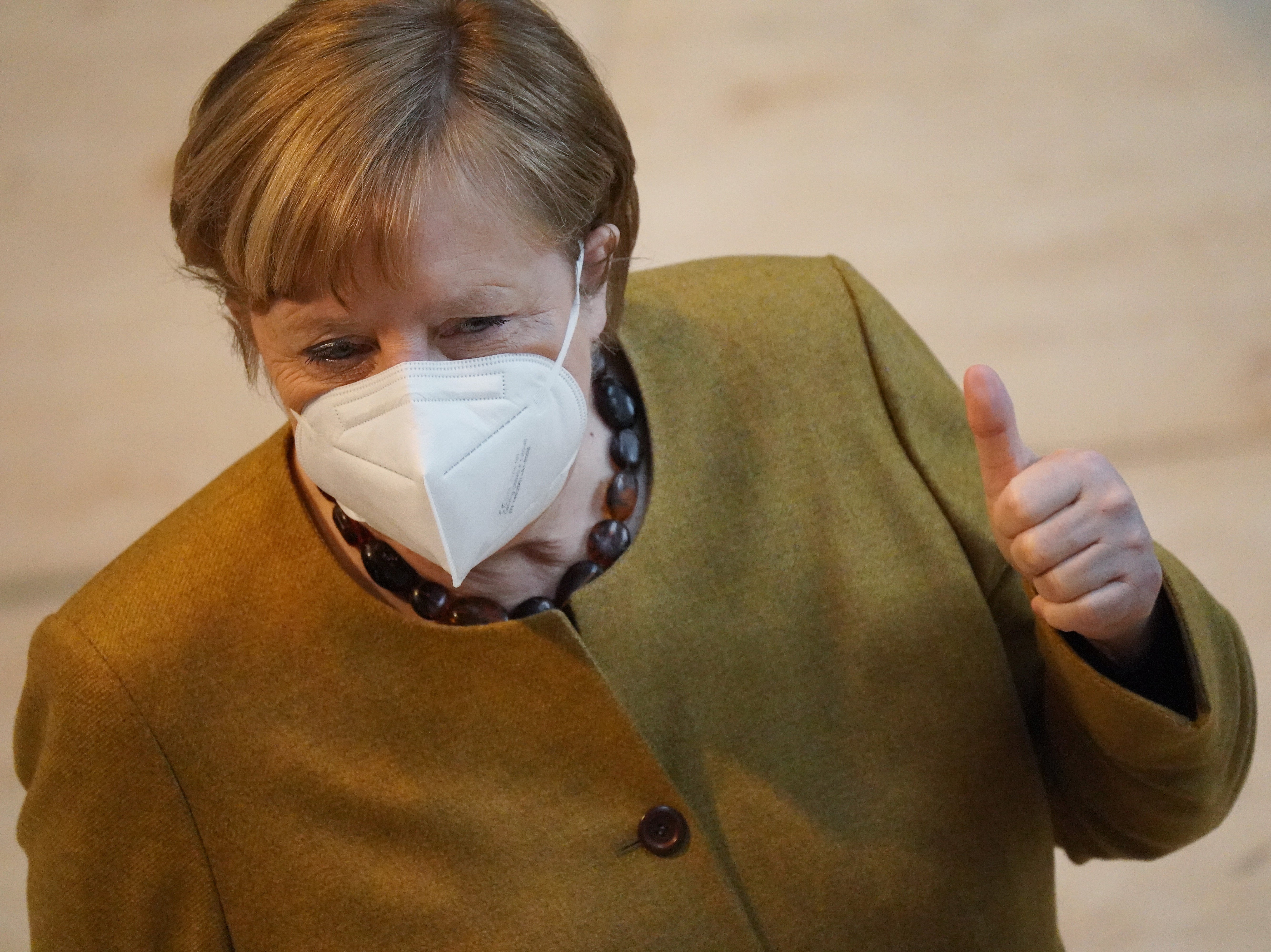Germany approves AstraZeneca vaccine for over-65s
Chancellor says country stands ‘at threshold of new phase’ in pandemic

Germany has approved AstraZeneca’s coronavirus vaccine for use in people over 65, in a significant U-turn.
It had previously insisted there was not enough evidence to allow such a move.
Jens Spahn, the country’s health minister, said the decision was, “good news for older people who are waiting for a vaccination. They will get vaccinated faster”.
Restriction of the jab to those aged between 18 and 64 led to low take-up and public scepticism about whether it would be effective.
The German health ministry said on Thursday that its standing vaccination commission had finally approved the jab for those aged over 65.
It followed a summit at which Chancellor Angela Merkel and state leaders agreed a phased reduction of coronavirus curbs and an “emergency brake” to allow authorities to reimpose restrictions if case numbers spike again.
“We are at the threshold of a new phase of the pandemic that we can go into not carelessly but still with justified hope,” Ms Merkel told reporters on Wednesday.
In a recent press interview Ms Merkel was asked whether she would “lead by example” and receive the AstraZeneca jab to allay the German population’s fears and replied that she was too old.
Asked whether she would get a different vaccine, the chancellor said other people, such as teachers, who could not socially distance as easily as her, should be inoculated first.
Asked on Thursday whether Ms Merkel would now receive the AstraZeneca vaccine given the age extension, a German federal government spokesperson referred The Independent to that interview, suggesting the chancellor would wait her turn.
Last week, EU Council president Charles Michel said the bloc wanted to increase its vaccine distribution. “Our top priority now is speeding up the production and delivery of vaccines and vaccinations,” he said.
To that end, the European Medicines Agency has begun a review of Russia’s Sputnik vaccine. It said it would monitor trials of the jab until there was enough evidence for a formal marketing authorisation application.
Meanwhile, the UK has given a first dose of vaccine – including AstraZeneca’s – to more than 20 million people.
Join our commenting forum
Join thought-provoking conversations, follow other Independent readers and see their replies
Comments
Bookmark popover
Removed from bookmarks